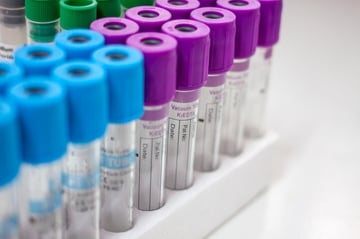
Bioanalytical Services
ADME Assays & Metabolite Profiling and Identification Services
A full range of bioanalytical services, including metabolic stability, enzyme identification, metabolite identification, metabolite absorption, metabolite stability assays, and drug-drug interaction assessments - ranging from highly automated screens to definitive studies that enable regulatory submission.
Tailored solutions for your DMPK services needs
We focus on execution of stage-appropriate studies and providing solutions to accelerate the development of your product.
High-Throughput ADME screening services
Our highly automated laboratory enables large scale screening efforts using in-house or client-customized protocols. Rapid turnaround to co-optimize the properties of your chemical platform, alongside your potency and selectivity targets. See detailed list of definitive in vitro ADME assays.
In vitro ADME lab services
We provide integrated drug metabolism and pharmacokinetic solutions, including insights into clinical clearance predictions, pharmacokinetic variability, and drug-drug interaction potential. In-house or client-customized protocols, discovery and regulatory-phase packages available.
Discovery and development, metabolite identification and profiling services
IQVIA can deliver holistic metabolite profiling and identification packages. In-house or client-customized study designs, discovery, and regulatory-phase packages are available.
- Discovery-phase metID (hot spot analysis, cross species comparisons).
- Clinical Phase I exploratory metID.
- 3H/14C-Radioprofiling and metID (preclinical and clinical).
- Reactive intermediate trapping (GSH, CN) and covalent binding (microsomes, hepatocytes).
Discovery bioanalytical services
Our bioanalysis services include rapid turnaround discovery analyses to assess drug exposure and/or pharmacokinetics for your in vivo pharmacology and toxicology studies. Can be partnered with our validated LC-MS/MS services for continuity into the clinic and beyond.
- High-throughput bioanalytical (plasma, various tissues).
- Cassette analysis.
- Dried blood spot analysis.
>175 PhD, >35 medical doctors
Focused on solutions to address DMPK issues of today
While our scientists routinely conduct industry-standard in vitro ADME assays, we are also developing novel assays to stay current with the DMPK issues of today to help better predict clinical outcomes. See detailed assay list.
- Non-P450 metabolism, including glucuronosyltransferase (UGT) and aldehyde oxidase (AO)-mediated metabolism ― We can help you design and execute in vitro studies to diagnose non-P450 pathways and guide you on next stages to better understand the drug-drug interaction potential of your drug.
- Slowly metabolized drugs, with intrinsic clearance estimations in conventional systems restricted by incubation time ― We have evaluated hepatocyte co-culture models and compared these novel systems to plated monoculture and suspended hepatocytes to enable human clearance predictions for low-turnover drugs.
- CYP3A5, a polymorphic drug-metabolizing enzyme that can contribute to pharmacokinetic variability in the clinic ― With the discovery of CYP3cide, a selective mechanism-based inactivator of CYP3A4, a relative activity factor (RAF) methodology can be used to estimate CYP3A5 contribution to total CYP3A metabolism using individual CYP3A5*1*1 donor HLMs.
- Metabolite-in-Safety-Testing (MIST), increasingly requested by regulatory agencies for early assessments of human metabolism ― We have the expertise to confidently profile first-in-human plasma to begin the iterative process of addressing your MIST coverage needs.
Whether your target compounds are for neuroscience, infectious disease, inflammation, or oncology, our scientists are ready to collaborate with you to accelerate your drug discovery, preclinical, and clinical programs. What differentiates us from other lab CROs is the diversity in real-world Pharma experience of our scientists and scientific leadership. From both a scientific and a regulatory standpoint, we have the experience to guide your drug discovery & development programs.

Related Services

ADME / DMPK Services
Learn more
Early Hit-to-Lead ADME Screening Bundle
Learn more
In Vitro Screening
Learn more
Discovery Bioanalysis
Learn more
High-Throughput ADME Services
Learn more
In Vitro Metabolism
Learn more
Assessing your Drug-Drug Interaction Testing Risk
Learn more
ADME Assays & Metabolite Profiling and Identification Services
Learn more
Metabolite Identification and Profiling
Learn more
Bioanalytical Services
Learn more

